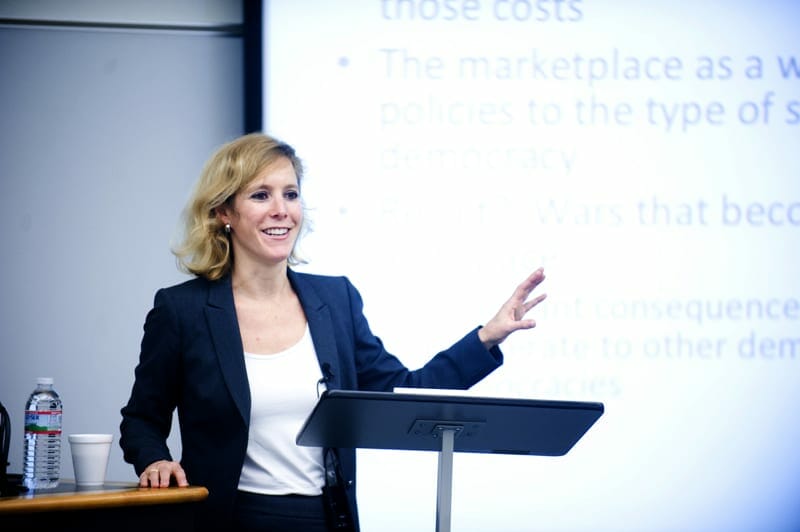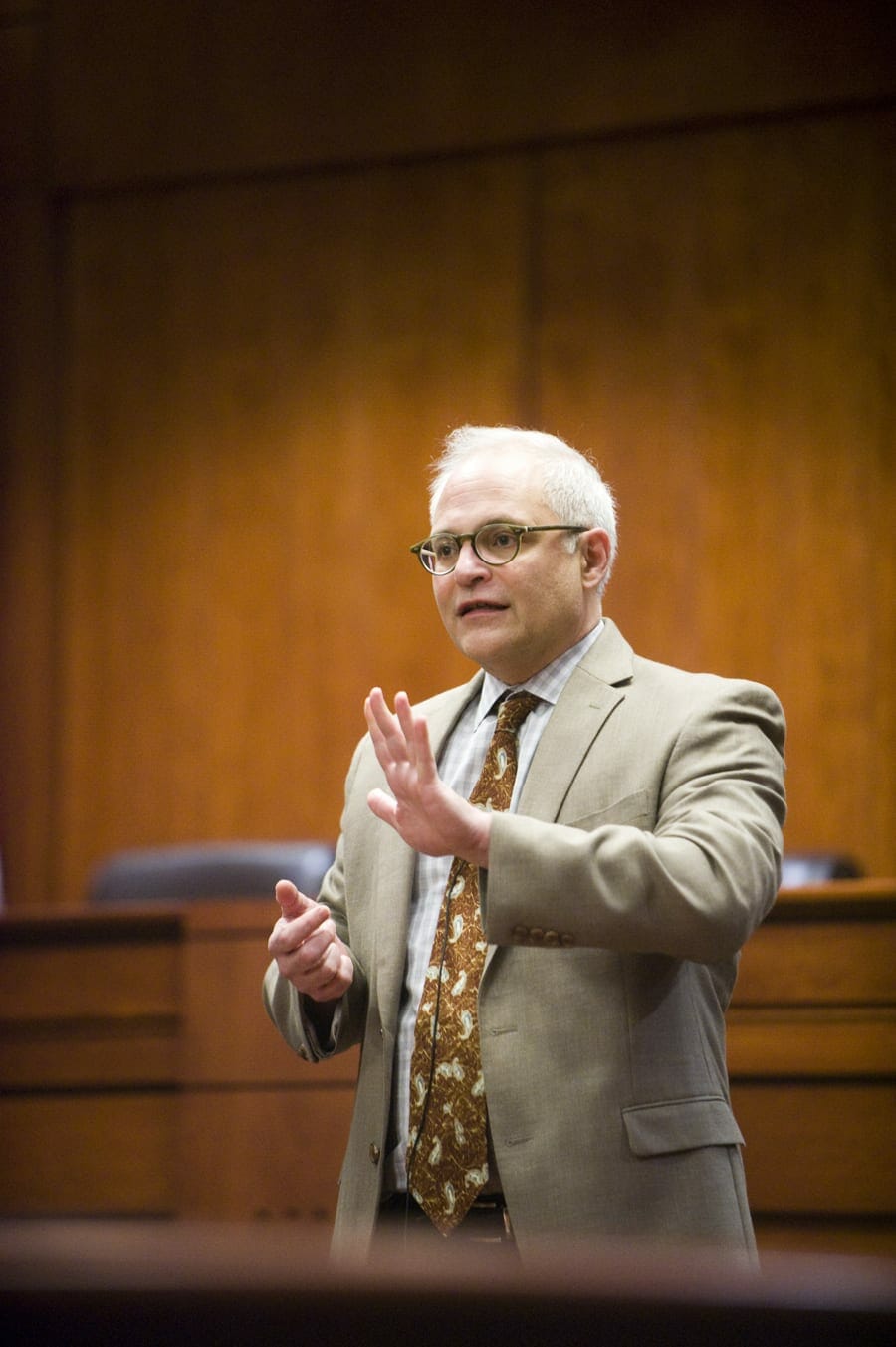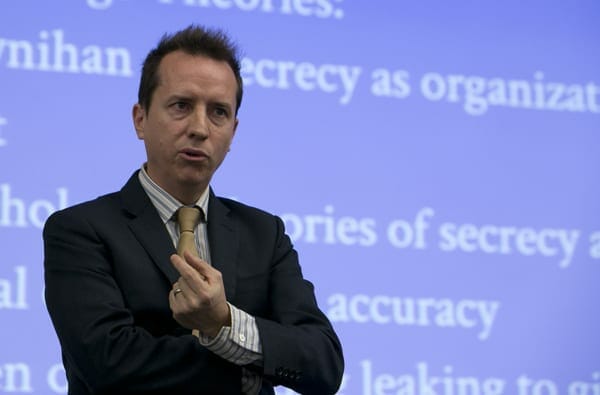Categories
Fall 2013 International Security Speakers Series Recap
Dec 17, 2013 | Other
The Center’s flagship speaker series continues to host more speakers each year, drawing world-renowned scholars, legal experts, and policy practitioners to the UT campus. This semester we welcomed seven experts to the 40-acres to share their research on topics as diverse as drone strikes, 18th century warfare, the 1970s, and declassification of government documents. Below you’ll find a sampling of some of these events. Stay tuned for the Spring 2014 lineup!
“The Constitutional Power to Threaten War” with Professor Matthew Waxman, Professor of Law at Columbia Law School.

Dr. Kreps discussed how the use of drones affects democratic accountability and how the marketplace of ideas shapes the drone debate. Her presentation was part of her forthcoming book, Drone Warfare. During her talk, Kreps argued that with respect to the use of drones, the marketplace of ideas (a rationale for freedom of expression) has not acted in the service of free debate. On the contrary, the ideological space in which discussion on the use of drones takes place is quite constrained. Although in theory the marketplace of ideas should allow the public to wrestle with ideas and present arguments on both sides of the debate, on the subject of drone warfare the media has remained silent or tacitly supportive of the government’s approach.

“Decoding Official Secrecy: Computational Analysis of Hundreds of Thousands of Declassified Documents” with Dr. Matthew Connelly, Professor of History at Columbia University.

Dr. Connelly spoke about his current project, the Declassification Engine. The project is a collaborative effort between historians, data scientists, and other stakeholders, and attempts to use data analytics to produce new tools to address, process, and analyze the growing corpus of official secrets. Connelly further discusses the project in a brief video interview, below:
Thank you to all of our speakers for a successful semester of events! For more information on upcoming events at the Strauss Center, view the Events page on our website.


